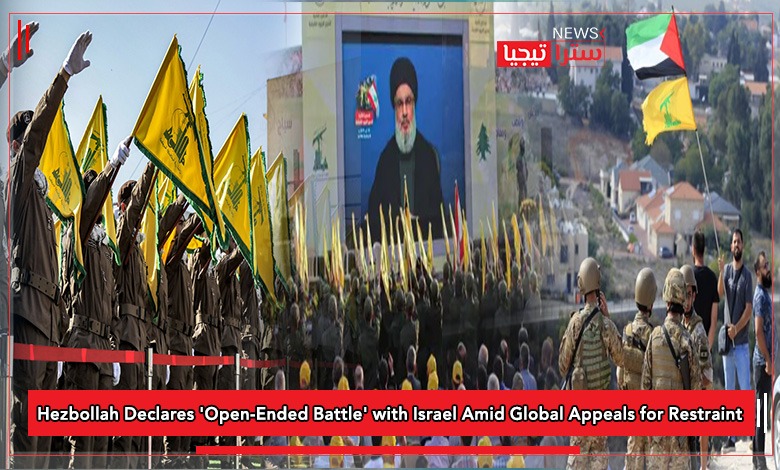Department of Security and Military Research and Studies 23-09-2024
Escalating tensions between Hezbollah and Israel have drawn warnings from the UN, with fears that the region is on the edge of a serious catastrophe.
Hezbollah announced its involvement in a “prolonged battle of reckoning” with Israel following a series of rocket attacks targeting northern Israel, while international powers urged both sides to avoid further escalation and a potential full-scale conflict.
In response, Israeli forces launched their most extensive air strikes in southern Lebanon in nearly a year, with Hezbollah retaliating by firing its deepest rocket strikes into Israel since the beginning of the Gaza conflict. The UN’s secretary-general, António Guterres, expressed concern, warning that Lebanon risked becoming “another Gaza.”
During the funeral of a high-ranking Hezbollah commander who was killed alongside 44 others in an Israeli strike on the southern suburbs of Beirut, Hezbollah’s deputy leader, Naim Qassem, declared that the conflict had entered an “open-ended phase of reckoning.” He stressed that threats would not deter Hezbollah, stating, “We are prepared for all military scenarios.”
As Israeli airstrikes targeted border villages, over 100,000 Lebanese residents fled north, and Lebanese officials called for de-escalation to prevent war. Lebanese authorities confirmed that four people were killed and nine injured over the weekend. Israeli Prime Minister Benjamin Netanyahu also intensified his rhetoric, promising further action if Hezbollah failed to comprehend the gravity of the situation. “No nation would accept attacks on its civilians and cities,” he said. “Israel will do whatever it takes to restore peace.”
The Israel Defense Forces (IDF) reported that hundreds of rockets were launched from Lebanon into Israel, some reaching as far as Haifa. They noted that many rockets were aimed at civilian areas, marking a shift from previous attacks that primarily targeted military installations. Six people were injured in the strikes.
The UN’s special coordinator for Lebanon, Jeanine Hennis-Plasschaert, issued a statement on X (formerly Twitter) warning that “there is NO military solution” capable of ensuring the safety of either side.
Meanwhile, hospitals in northern Israel, including Rambam Hospital in Haifa, have begun relocating patients to more secure underground facilities due to the increasing threat of rocket and missile attacks. Medical staff have canceled non-essential surgeries but continue to perform urgent procedures.
In Lebanon, the relentless barrage of attacks has left civilians with little choice but to acknowledge the intensifying conflict. Among the casualties of an Israeli airstrike in Beirut were three children and seven women, part of a wave of violence that also claimed the life of top Hezbollah leader Ibrahim Aqil. Israeli forces are suspected to be behind these attacks, although they have not officially taken responsibility.
The brutality of the recent attacks has shattered the fragile sense of security in Lebanon. “This is the first time I’ve truly felt that war is at our doorstep,” said Amal Cherif, a Beirut resident. “We’re no longer safe.”
The hostilities between Hezbollah and Israel come alongside the ongoing conflict between Israel and Hamas in Gaza, where over 41,000 Palestinians have died, primarily civilians, according to local health authorities.
Global leaders have ramped up efforts to push for a ceasefire between Israel and Hezbollah. The White House’s national security spokesman, John Kirby, emphasized that further escalation was not in Israel’s best interest, while the EU and UK have echoed calls for immediate diplomatic intervention. British Foreign Secretary David Lammy urged for a ceasefire to allow civilians on both sides to return to their homes.
However, António Guterres expressed doubts about the willingness of either side to pursue peace. “It’s clear to me that neither party is interested in a ceasefire, and that’s a tragedy. This war must end,” he said.

